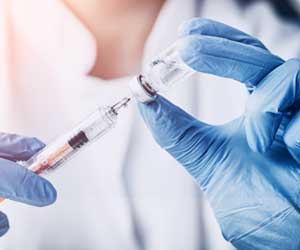Like many cultural events, a male circumcision ceremony in eastern Uganda has its share of governing rules: the candidate is not supposed to see the surgeon until seconds before
Like many cultural events, a male circumcision ceremony in eastern Uganda has its share of governing rules, the 'candidate' is not supposed to see the surgeon until seconds before the cutting and his mother cannot be present.
But as Sam Natsambwa, 23, prepared for his circumcision on a recent Saturday one rule seemed more important than the rest."You don't scream. It's taboo. You don't. Even if it pains you. It is not allowed. Maybe you can cry internally, but you don't scream," insisted Geofrey Natubu, who officiated in his capacity as vice chairman of Bududa District, a lush, mountainous area about 250 kilometres east of Kampala.
As the surgeon lowered the knife to Natsambwa's midsection, the candidate, his body and face caked in the customary mud and millet, steadied himself and fixed his eyes straight ahead.
He didn't look down, nor at anyone around him until it was over. He didn't flinch or groan or even grimace. And he certainly didn't scream.
The cutting only took seconds and when it was finished, the surgeon raised the knife above his head in celebration. Music played and the dozens of onlookers danced and drank local brew.
Minutes after the act, Natsambwa, a bloodstained cloth strung around his waist, sat on a stool in the middle of the crowd. "I was panicking before," he said. "I was thinking, a few minutes ago, maybe I couldn't withstand the pain."
Advertisement
Recent studies conducted in Uganda, South Africa and Kenya all suggest that medical male circumcision can reduce HIV transmission by as much as 60 percent, according to Doctor Alex Opio, a Ugandan health ministry expert.
Advertisement
In neighbouring Kenya, Prime Minister Raila Odinga publicly endorsed the drive for the male population to be circumcised, in defiance of the tradition defended by the elders of his Luo tribe, which straddles the border with Uganda.
As a result, the government is developing a plan to promote circumcision across the country.
Doctor Kihumuro Apuuli, head of the Uganda AIDS Commission, recently said that at the World AIDS Conference in Mexico City, Uganda was identified as "one of the countries that was doing well but is now falling back," in its battle against HIV/AIDS.
"Some support circumcision, others trash it, but if you get an intervention that can contribute to the reduction of infections, you have to support it," he said, explaining the rationale behind the government's decision.
The scientific community remains divided on the evidence to support the claim that circumcision reduces the risk of contracting HIV, while some also argue that such a finding may have encouraged men to take fewer precautions.
But Opio, who is coordinating the government's plan, believes there is "overwhelming support in the country," for the idea.
While the plan is not yet finalised, Opio said the health ministry hopes to begin by targeting adolescents, circumcising young men before they become sexually active.
The age at which a Bugisu is circumcised varies from clan to clan between 14 and 25. "It is an in-born thing. We don't force you," said Natubu, the district vice chairman.
"If my son tells me he wants to be circumcised I will ask him if he is confident that he is going to manage. If he says, 'yes father, I am ready,' I will say 'OK, but don't make me ashamed as a parent.'"
Though the Bugisu have been practicing circumcision for centuries, the government has no intention of advocating their approach.
"The ceremonies associated with that ritual are not safe," Apuuli of the AIDS Commission said. "Using the same knife on different people. Having sex before the wounds heal. We are talking about safe circumcision."
Natubu admitted that there was a time when the ceremonies performed in his district were unsafe, but he said that ten years ago, once the community fully recognised the danger of HIV/AIDS, they began using only one knife per candidate.
"We wish other tribes to come on board. If it is true that is one of the preventive measures against HIV/AIDS, then it is better for us all to take it, irrespective of the way through which you do it. You can do it the way you want."
Source-AFP
SRM










